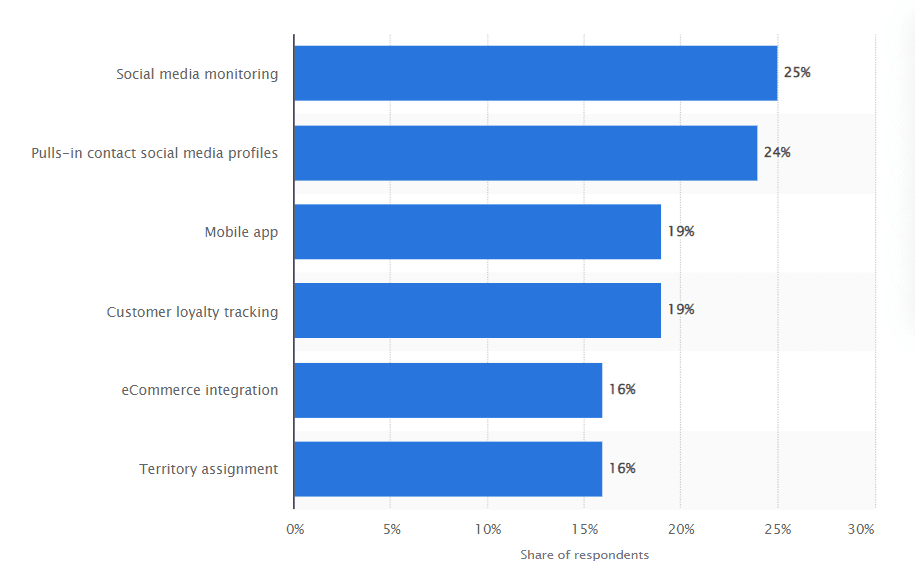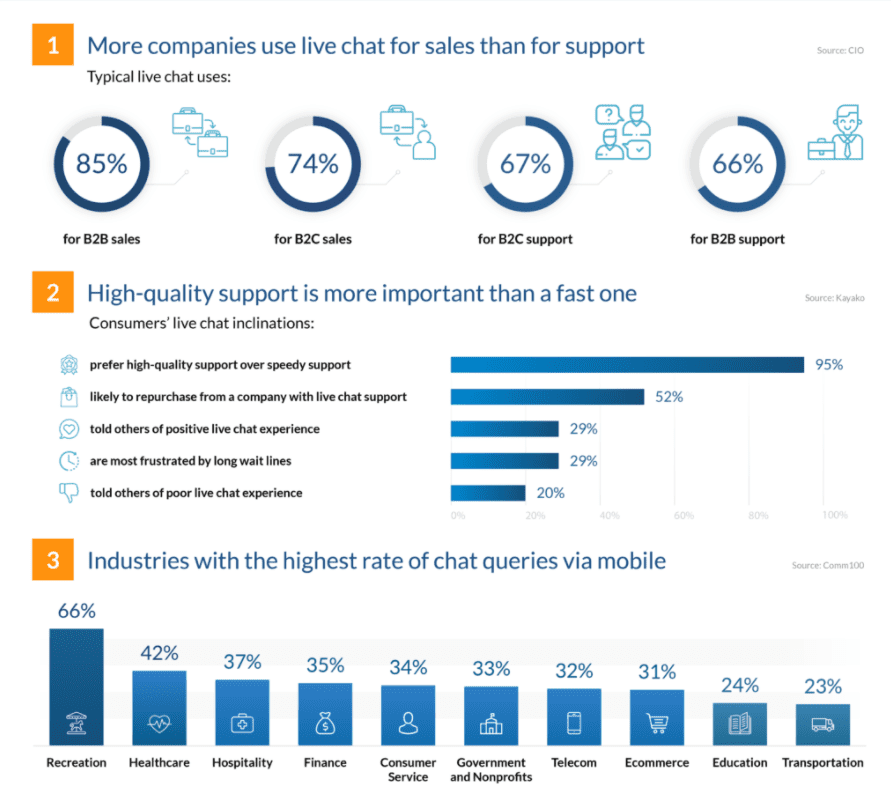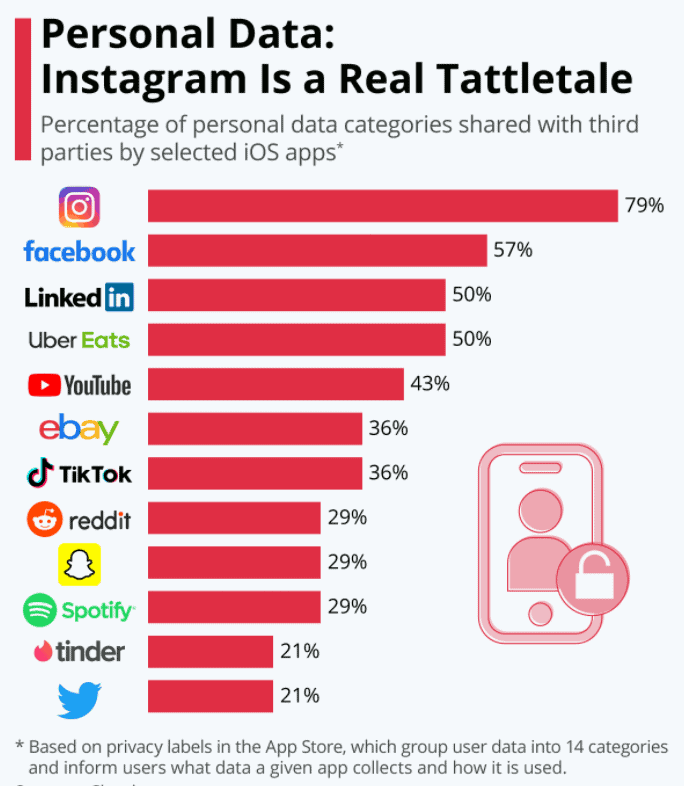Updated on March 20, 2023
Customer Relationship Management, better known as CRM, is software that helps businesses create trustworthy relationships with their customers that, eventually, result in a higher retention rate. No wonder its market continuously grows these days.
CRM Data Integration refers to the ability to integrate various accounting tools, live chat platforms and even integrate your company’s social media account into the CRM system; that is why so many entrepreneurs use this software.
This article gives an insight into the seven best ways to integrate your sales data with CRM.
Why CRM data integrations are important for sales?
CRM systems are an integral part of businesses. Whether you are an owner of a small but growing business or hold a key position in some enterprise, you know that CRM drives customized communication. Specific software turns data into guidelines on treating this or that client that is priceless for your company.
Business people throughout the world have already estimated the pros of CRM integrations. The statistics below demonstrate the most wanted CRM software features among users. As you can see, social media monitoring has the leading position on the list — 25 % of respondents want to have this feature for their enterprises:

The most vivid advantages you get with the CRM integration are as follows:
-
- Enhanced customer service. CRM systems store multifold information regarding your customers, including their purchase history and demographics. The software gives teams access to all the required data. Therefore, you will have means for customer satisfaction acceleration and the clients’ retention.
- Sales’ upgrade. It is easier to organize the entire sales process with CRM. You can build a pipeline, analyze sales data, and automate employees’ tasks using live chat automation and a scheduling option. Keeping everyone in the company busy and updated, you contribute to the company’s productivity.
- Clear analytics. One of the most potent benefits of a quality CRM tool is a built-in function that enables analytical data processing. Collection and data integration is the first step, as you need to know precisely how to use, optimize, and apply this information to your current needs.
- Higher efficiency. As CRM tools streamline the work process, employees become more productive in their daily tasks. For instance, if you use some separate accounting tool or communication platform, you will have to scramble between these technologies. It is much better to have a CRM with several integrated tools.
7 reasons why you should integrate sales data with your CRM
#1. Fresh leads tracking 🕵️♂️
CRMs can be very helpful when you need to monitor new leads from the website. Especially if talking about eCommerce, you will be surprised how beneficial it is to implement CRM software into your employees’ daily routine. For example, business owners can boost a client base and level up customers’ convenience, as such software helps understand the customer journey.
The lead flows continuously pass the pipeline, so the salespeople must stay organized while managing potential clients. The adoption of the CRM tool ensures a structured tracking process, where your employees have opportunities for successful outreach operations and regulated follow-ups. Monitoring the journey of the fresh leads, they will know the customers’ expectations and, thus, will be able to meet these.
#2. Contact Database in one place 🖇️
Working with a massive database, you may know how hard it is to find a particular phone number or an email. In this case, a simple CRM software is precisely what you need, as it allows you to keep all the contact information in one place. It is vital for sales to reach out to a customer fast. The CRM system already has this record if a person has previously interacted with your enterprise.
Salespeople know that a quick reaction is priceless and may even cost a client. Therefore, if employees need contacts for sales pitches, they can use CRM records. Thus, sales managers spend less time searching for the correct folder to get records. Not only does this add to the team’s productivity, but also the customer satisfaction rate.
Get complete sales data for your CRM
#3. Scheduling optimization 📅
CRM systems smooth the way for sales’ routine optimization, especially when it comes to such a tedious yet critical thing as scheduling. What do schedules give employees and business owners? First, a company owner sees a clear image of all the processes and how people complete their tasks. Secondly, the managers better prioritize or rearrange their jobs.
An integrated scheduling feature of a CRM tool can eventually save the managers’ time. Imagine you create a client engagement strategy. In this case, you will have to orchestrate some day-to-day activities, calls, meetings and check the backlogs. There are more chances to organize critical and data-based decisions, especially if there are multiple platforms your managers use for their work. The clients, from their side, can also reach out to the needed manager by booking the call via the calendar.
#4. Live chat implementation 🤖
Live chats are already a part of our daily work life due to their convenience. For example, if you need to find a particular message, just go to a search box, paste the keyword, and voila – here is the answer to your question! Working with the clients, salespeople need to understand what brought a person to the website, whether they like the services, products, design, etc. You can constantly examine the customer journey. It can become a troubleshooting tool to a large extent. Expanding businesses prefer outsourcing Live chat services for improved customer experience.
People tend to integrate other valuable programs into CRM software. Any workflow automation results in cost- and time-saving on diverse levels. For that reason, it is wise to pick a collection of extensions, tools, and software to achieve the strategic goals of the teams.

Phone calls and emails recede into the background with every new year. Live chats, on the other hand, gain momentum and consolidate positions. Any business that deals with customer interaction should consider live chats integration.
Sales managers have to communicate a lot with clients, so here are some of the tools that might come in handy for them:
-
- Slack: a communication tool for your team. It adds to employees’ coordination and offers rich, simple functionality. You can either start a live chat or make a call online, even a video call! Moreover, all the information you receive while chatting with a person;
- CallRail: a platform that collects analytical data and syncs text message information with your CRM;
- Zoom: a software that became a part of our lives during the pandemic. You can integrate Zoom into your enterprise calendar software, as well as into your CRM. Sales managers can chat with customers during live video meetings. Also, there is an opportunity to make a video recording to revisit the conversations later;
- Intercom: a chat tool widely used in different spheres. The Intercom platform logs visitors of the site connected to your CRM. The system captures these people as potential leads. Thus, when you need to communicate with a visitor via live chat, you already have a previous conversation history, information about their customer journey, and contact data.
#5. Use accounting tools to the full 👌
The most significant benefit you get with the accounting tool integration in your CRM deals with the revenue sources. In other words, it is easier for business owners to see the primary source of income in an understandable and informative way. Two other reasons to sync the accounting software with CRM are as follows:
More time for administrative tasks
Imagine that your employees use CRM and accounting software separately. In practice, it will take some time to upload financial data manually to your CRM system. Eventually, this operation can steal lots of time, while managers need to do this for data tracking and analysis all the time. It won’t be very noticeable if you own a small company. However, if you own a big enterprise that delivers a range of services/products, data transfer will take more time. For that reason, it is wise to integrate accounting tools into your CRM software.
Error-free revenue records
Nobody wants mistakes in the financial reports since such an outcome may lead to drastic material losses. By adding an accounting tool to an ordinary CRM, managers can easily extract invoices and organize contact data. Besides, almost 90% of CRM software is cloud-based, securing all the documents’ safety and privacy.
These aspects mean a lot for the businesses that aim to grow their profit, expand the buyers’ database, and see which services add to revenue the most. Automating the accounting processes via CRM considerably decreases the human error aspect. Additionally, you can be confident about data accuracy and its constant up-to-date status.
#6. Sales and social media integration 🍭
By no means social media appears everywhere today. No surprise that so many businesses switched to the online environment, as people like to use easy and familiar platforms. You can also use social media with your corporate CRM software.
Lately, social media as a sales channel has become a more effective way to meet sales targets. Sure, you need to be versed in social media workflow before integrating the company’s profile into the CRM tool. Knowing your target audience, the team of content writers, designers, and analysts will sustain the profile that will attract many potential customers.
Social media are fun, helpful, informative, but also data analysts like using users’ profiles to get more information about potential buyers. Two years ago, there was research on what personal data different apps collect, whether they share it with third parties, and how they use it. The graphic below leaves no space for hesitation — Instagram is the flagman. Keep in mind this every time you see an advertisement that sells exactly what you were thinking about lately. You can use this platform to your advantage and reach the target audience,

So, what exactly do social media platforms give you as an entrepreneur? First off, it integrates the enterprise’s social media accounts with a solid CRM tool that allows salespeople to have a picture of their audience. You can gain contact information, get insights about their favorite content, and monitor the history of the direct messages. Secondly, all this information contributes to your communication strategy and posting decisions.
#7. CRM and payment tools integration 💰
Finally, you can also sync various payment tools with the CRM. The idea of CRM is to make business owners’ lives easier. You surely can use several disconnected platforms for your enterprise but should consider the customer experience — buyers need simplicity and fast solutions. In eCommerce, integration of the payment tools with the CRM systems brings you several excellent benefits, such as:
-
- An opportunity to sync your products, orders, contacts, and store data in one place so that you can access it anytime you need;
- The client can make payments using your website, chats, or email;
- The built-in payments ensure a smooth user experience and, most likely, the customers’ desire to use the site again in the future;
- Provide your customers with the payment links and let them pay via chat, website, or email. This way, you will be able to collect data using social media profiles. This information would be helpful for your company’s sales teams, including marketing and customer support teams.
Wrapping up
In the end, if you know how to use the CRM system effectively and sync it with some additional tools, your business will soon experience many advantages. Yet the essential one deals with the business growth boost, attraction of the new and devoted clients, and competitiveness on the market.



